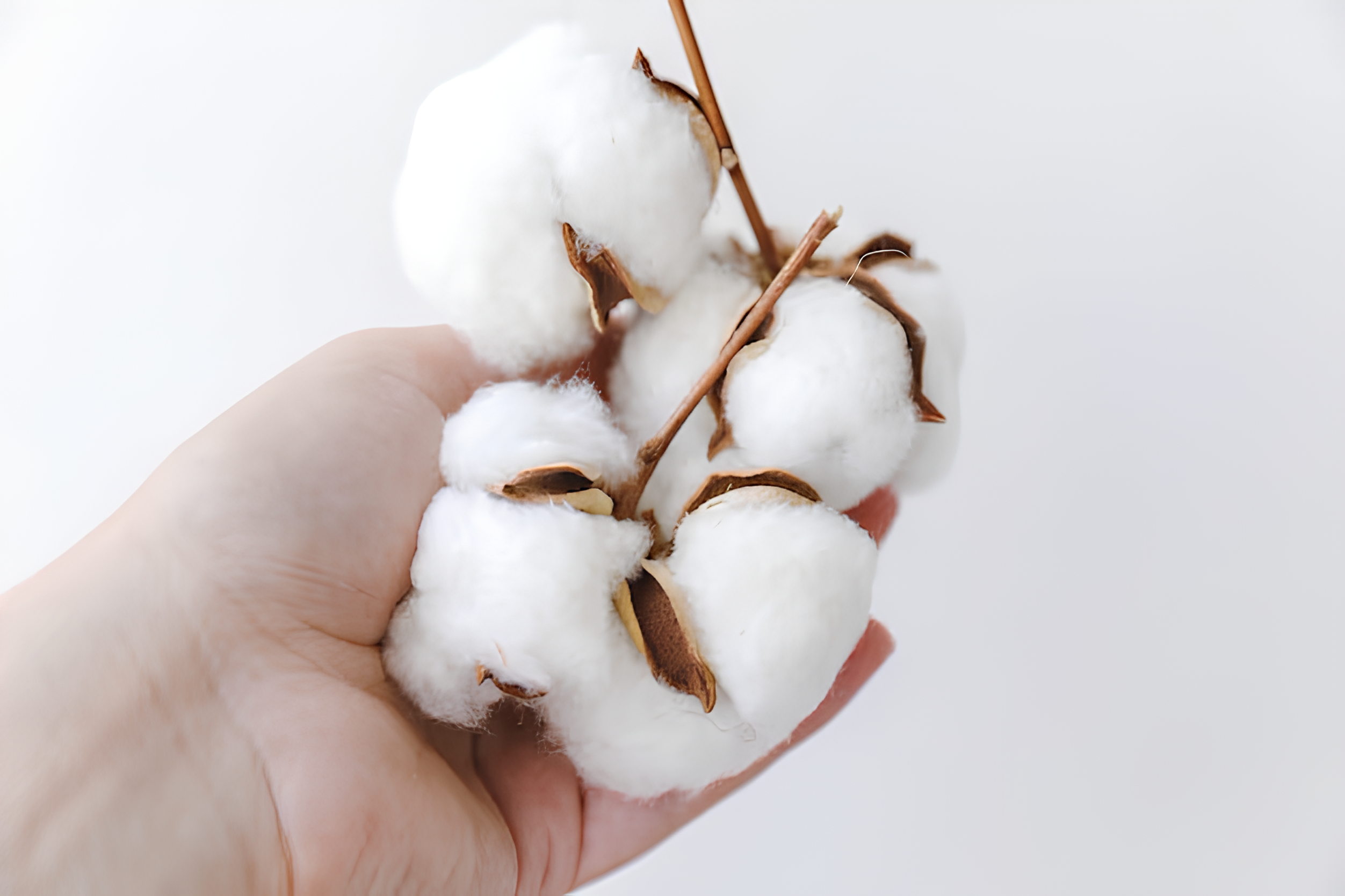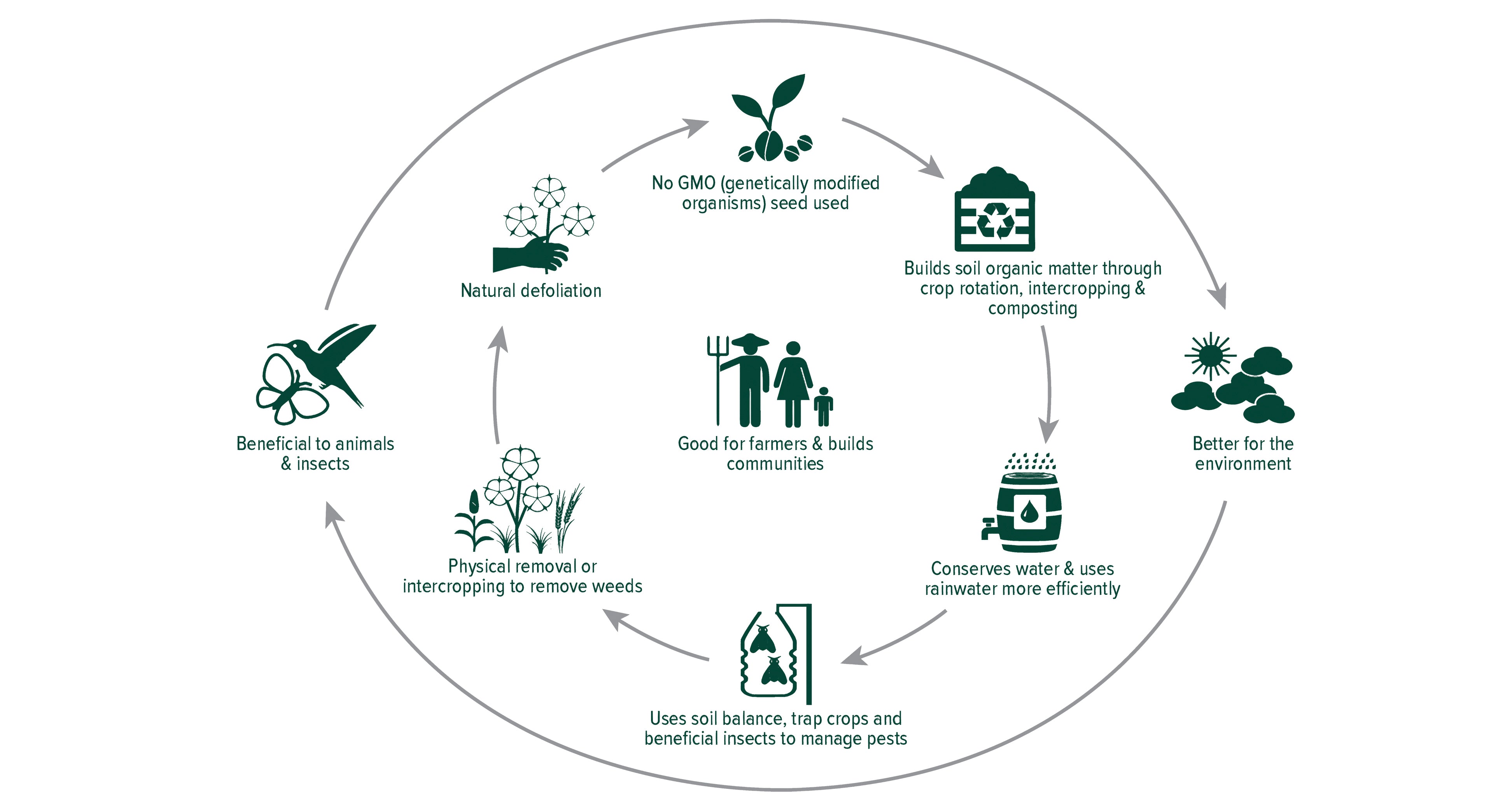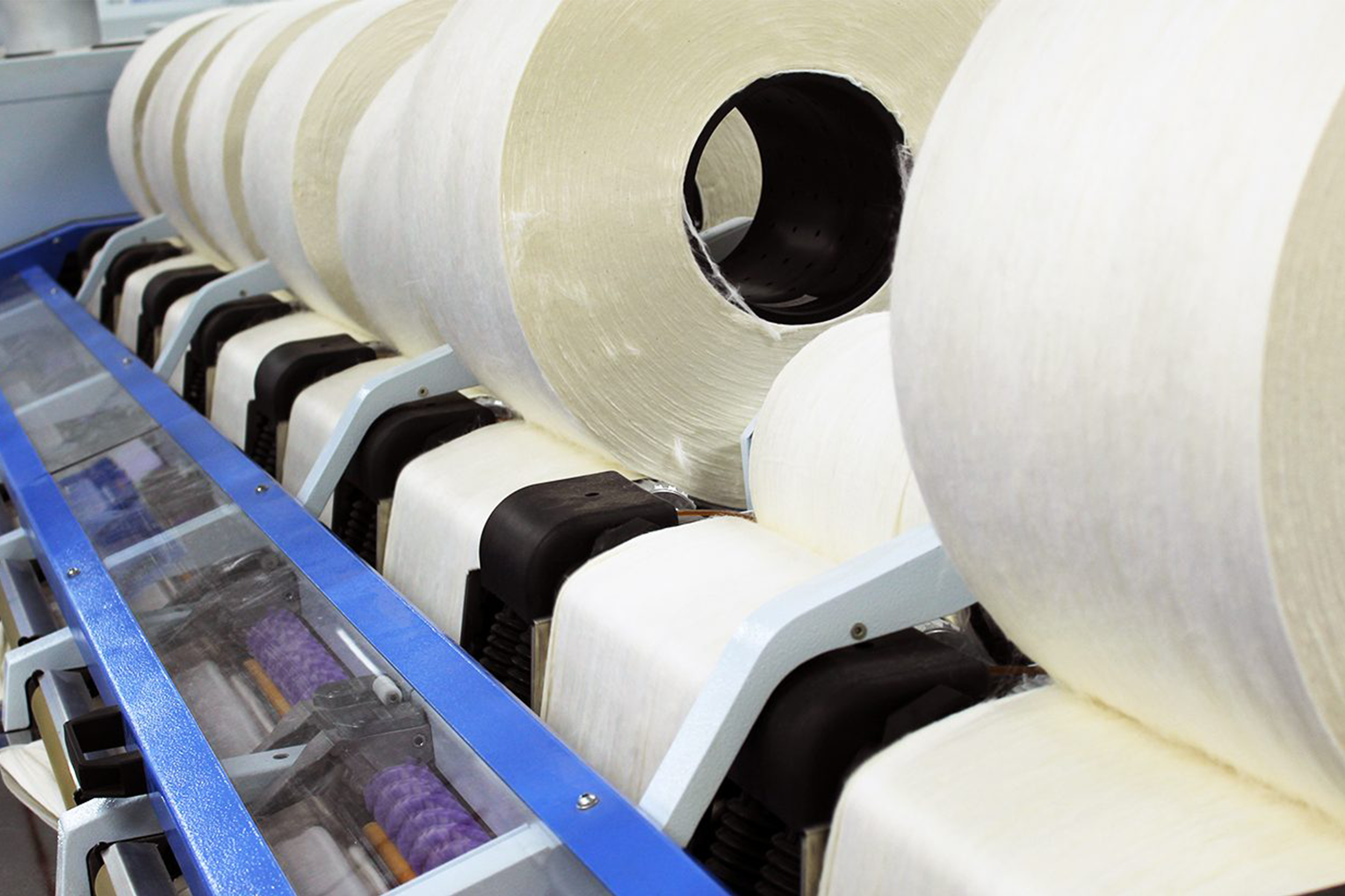100% ORGANIC COMBED COTTON
When developing our t-shirt, our main focus was not only to create a high-quality garment, but to also address the negative impact that conventional cotton production has on the environment and its workers. This is why we opted for 100% Organic Combed Cotton as our fabric choice.
Our cotton is grown on a small, family-run farm with a passion for organic farming by Joseph and Lisa Davis from South Carolina. The cotton is shipped to our textile factory in Guimaraes, Portugal after it has been picked. Here, the cotton undergoes a comprehensive treatment process known as 'Combing', to enhance the developing yarn. It is then spun into a 24/1 yarn before being transported to our UK mill, three miles from our factory in Leicester, where it is custom-knitted into our 300gsm single jersey fabric.
WHAT IS ORGANIC COTTON?
Organic cotton is cotton grown in agricultural systems that work with nature, rather than against it. By eliminating the use of synthetic fertilisers and pesticides, not only does this reduce the amount of toxic chemicals in the environment, making it safer for the farmers, but it also helps conserve biodiversity and promote soil and water health. This also benefits you as it leads to a safer finished product with no chemical residues that may affect the skin.
Sadly, the cultivation of organic cotton represents a mere 2% of the overall cotton production and the term 'organic' is cynically employed as a misleading marketing tactic.
That is why our Organic Combed Cotton is GOTS (Global Organic Textile Standard) certified - the gold standard for organic cotton certification. This certification guarantees the organic status of our cotton, throughout all stages of its production as it meets stringent ecological and social criteria set by the GOTS organisation such as fibres requiring to be at least 70% natural and controls on chemicals used. With our cotton, you know exactly what you are getting.

FIVE REASONS WHY GOTS CERTIFIED ORGANIC COTTON IS IMPORTANT
1. Encourages Carbon capture
Organic farming revolves around nurturing the soil by enriching it with composts, manure, and practicing regular crop rotations. Additionally, the soil remains covered with various crops all year round. This process aids in the accumulation of 'soil organic carbon', leading to organic farming capturing more carbon dioxide.
2. Embraces a safer approach
Organic farming offers a safer alternative by minimising the presence of hazardous chemicals. This practice plays a crucial role in reducing greenhouse gas emissions. Unlike conventional methods, organic farmers refrain from using manufactured chemical fertilisers, which are typically imported and produced through the burning of fossil fuels. Instead, they opt for natural fertilisers like green manures, animal manures, and ‘cover crops’ to fix nutrients, as well as crop rotations. Not only does this benefit the farmers, but it also makes the final product safer and kinder to those with sensitive skin.
3. Energy and water conservation
Organic cotton is a true champion when it comes to saving energy and water. By relying on rainwater for 80% of its needs, it manages to reduce water usage by a remarkable 71% compared to regular cotton. And that's not all – it also minimises the need for fertilisers and tractors, resulting in 62% less energy consumption
4. Supports local farmers and their communities
By supporting local farmers and their communities, organic farming not only ensures fair wages and better treatment for farmers, but also promotes a balanced ecosystem on their farms. These farmers grow a variety of crops alongside cotton, which helps maintain healthy soils, support wildlife, and protect topsoil. Additionally, these crops offer farming families and communities a reliable, plentiful, and diverse food supply, as well as an additional source of income.
5. Preserves quality
By being hand-picked, the organic cotton preserves the quality and integrity of its fibres resulting in long, strong fibres that are soft and durable.

Prior to being spun into yarn, our cotton fibres undergo a comprehensive treatment process known as combing.
SO, WHAT IS COMBED COTTON?
To ensure the highest level of purity, cotton fibres are meticulously aligned in a single direction through the process of carding then fine brushes are utilised to comb the fibres, eliminating impurities and short fibres. This meticulous process ultimately leaves behind only the longest, strongest, and straightest fibres that are uniformly aligned.

THE BENEFITS
As a result of this, the combed cotton offers:
- Improved Softness: It creates a buttery soft and smooth fabric that feels great on even the most sensitive of skin. We were blown away when we felt our fabric for the very first time!
- Durability: The elimination of shorter fibers through combing makes combed cotton stronger and more durable than regular cotton, allowing the garment to keep its shape and integrity
- Reduced Pilling: The combing process also helps resisting wear and tear by being less prone to pilling and shrinkage, ensuring that your combed cotton garment maintains a smooth and neat appearance for longer.

